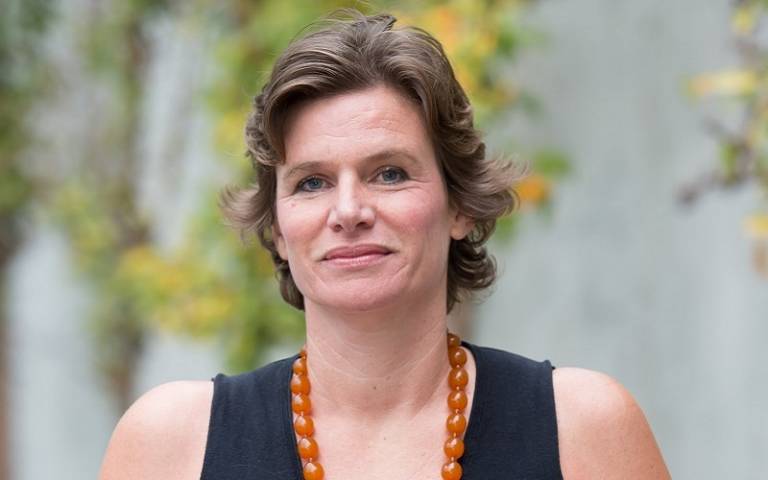Opinion: Covid-19 shows health spending is broken — here’s how to fix it
28 October 2021
We should treat human wellbeing as a long-term investment rather than a short-term cost, says Professor Mariana Mazzucato (UCL Institute for Innovation & Public Purpose).

When G20 finance and health ministers meet this week as part of the summit in Rome, health funding must be at the top of their agenda.
Additional money is urgently needed to address the current pandemic and shape preparations for future threats. The leaders of the IMF, World Health Organization, World Bank and WTO have already joined together to advise that “investing $50bn to end the pandemic would pay a huge dividend in development and would boost growth and wellbeing globally. But the longer we wait to act, the costlier action becomes — in human suffering and in economic losses.”
However, just throwing money at the problem will not be enough. As two WHO bodies have recently highlighted, Covid-19 has exposed our current economic model as insufficient, outmoded and negligent. We mistakenly treat health as a short-term cost on squeezed public budgets rather than a long-term investment in expanding public value. We facilitate private investments in health that prioritise short-term profits over human needs; and health funding generally serves immediate demand rather than seeking to improve long-term supply and build public capacities to deal with future crises, not least another global pandemic.
The model is broken — it’s high time we fix it.
Finance is not neutral — both quantity and quality matter. We need to radically augment, redirect and regulate health spending to prioritise the equitable and sustainable provision of human health and wellbeing, in short, health for all. This means asking how the economy can serve health, not vice versa.
As the ministers meet in Rome, three considerations should be front-of-mind as they address the pressing need for more funding focused on ending the pandemic and building resilience.
First is the need to create the fiscal space necessary to significantly increase public investment. This means setting aside common perceptions that impose artificial constraints on public spending.
Government debt is not the same as household debt, and deficit spending in pursuit of human economic wellbeing is more than justified. International lending organisations such as the IMF and World Bank must rethink the demands for fiscal restraint they have traditionally imposed on borrowing states and instead allow them to treat health spending as an investment in individual and collective goals.
Second, governments need to redirect their investments so that health for all becomes a central purpose of economic policy, and not the remit only of health ministries.
And third, we must change the governance of public and private health financing to put universal wellbeing first.
Concretely, this means redesigning and restructuring grants, transfers and loans with commonly agreed, good metrics at the centre of public and private partnerships.
Stronger conditions must be attached to bailout and recovery programmes to ensure that government subsidies are linked to investments that steer the economy in a more sustainable and equitable way.
And patents in particular need to be designed differently to make them less extractive so that they foster increases in collective knowledge rather than just private profits.
These changes are needed urgently to avoid past mistakes. Public and private investment in vaccine production, for example, has fallen woefully short of what is needed to end the pandemic because the jabs are not universally accessible, leading to what the WHO director calls “vaccine apartheid”. An overhaul of health financing is just one — albeit vital — component of a much needed radical paradigm shift. G20 states should learn lessons from the pandemic and heed this call for more purposeful investment and for governments and businesses to work in partnership to “build economic resilience as a global public good”, as the G7 Economic Resilience Panel recently put it.
We must reorient economic policymaking around ambitious missions with clear public purposes. Achieving health for all is one of them. The COP26 goal of reaching net-zero carbon emissions by 2050 and limiting global warming to 1.5C is another. The only way to build resilience against escalating global crises and future health shocks is to secure a new relationship among states, and between businesses and the state. For too long economic growth has been an end in itself. Covid makes clear that the global economy must be remade to serve the common good.
This article first appeared in the Financial Times on 28th October 2021.
Links
- Original article in the Financial Times
- Professor Mariana Mazzucato’s academic profile
- UCL Institute for Innovation & Public Purpose
- UCL Faculty of the Built Environment
 Close
Close

